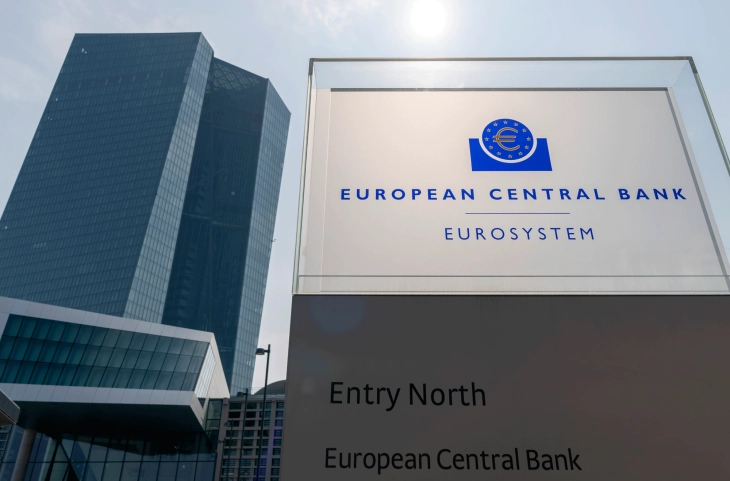ECB hikes rates again; Lagarde vows to 'break the back of inflation'
- The key interest rate in the eurozone will rise by 0.25 percentage points to 4.25%, the European Central Bank (ECB) announced on Thursday.
- Post By Ivan Kolekevski
- 21:46, 27 July, 2023

Frankfurt, 27 July 2023 (dpa/MIA) - The key interest rate in the eurozone will rise by 0.25 percentage points to 4.25%, the European Central Bank (ECB) announced on Thursday.
The interest rate hike is the ninth in a row for the central bank as it seeks to fight persistent inflation in the eurozone. The ECB's governing council approved the rate hike on Thursday in Frankfurt.
The interest rate increase was widely expected among investors and experts. ECB President Christine Lagarde had previously signalled an increase earlier in July.
But on Thursday, Lagarde suggested that the ECB might not raise rates again when the central bank's board of governors next meets in September, depending on where inflation stands in the eurozone.
"We might hike and we might hold," Lagarde told reporters in Frankfurt. "What I can assure you of is that we are not going to cut," she added.
She said the ECB's leaders will now be closely considering current economic data at each meeting to decide whether to further hike rates. All considerations, Lagarde said, would be dominated by the ECB's goal of 2% average inflation over the medium term.
"We are very strongly rooted in our determination to break the back of inflation," Lagarde said, adding later that "2% is the goal and we will get there, come what may."
Lagarde acknowledged that inflation indicators have improved in recent months but said that "we are seeing inflation that is still too high - and that we project to remain too high for too long."
Following Thursday's interest rate hikes, the ECB will now lend to commercial banks at 4.25% interest. Money deposited by banks with the ECB will earn 3.75% interest in the future.
The last time interest rates in the eurozone topped 4.25% was in early October 2008 at the beginning of the global financial crisis.
Calls for a pause in interest rate hikes from some experts are becoming louder, in part because the outlook for economies in the eurozone has become more cloudy.
"With this rate hike, the ECB's job is done for the time being," said Dekabank chief economist Ulrich Kater. "From now on, the window for further interest rate increases is closing, because inflation will fall significantly in the autumn."
Kater urged the ECB to wait and see what effect past rate hikes had on inflation before increasing rates further.
After years of zero and negative interest rates, the ECB has raised interest rates in an unprecedented series of hikes since July 2022 in view of persistently high inflation.
The United States Federal Reserve also raised its key interest rate on Wednesday to its highest level in 22 years. The key interest rate there is now in the range of 5.25% to 5.5%.
Higher interest rates can make loans more expensive, which may slow down demand and counteract high inflation rates.
"Beyond the July meeting, signs of a cooling economy and easing inflationary pressures will make the discussion at the ECB about how far to go more controversial," said ING Germany chief economist Carsten Brzeski.
Friedrich Heinemann, an economist at the Mannheim economic research institute ZEW, said that inflation remains an issue for the eurozone. "However, it is justifiable if the ECB takes a break now, lets the interest rate hikes take effect and, if necessary, increases them again in October."
In Germany, regular people with savings in bank deposits are starting to earn modest interest after years of negligible rates. But the construction sector in particular is now feeling the effect of higher borrowing costs.
Photo: MIA archive







